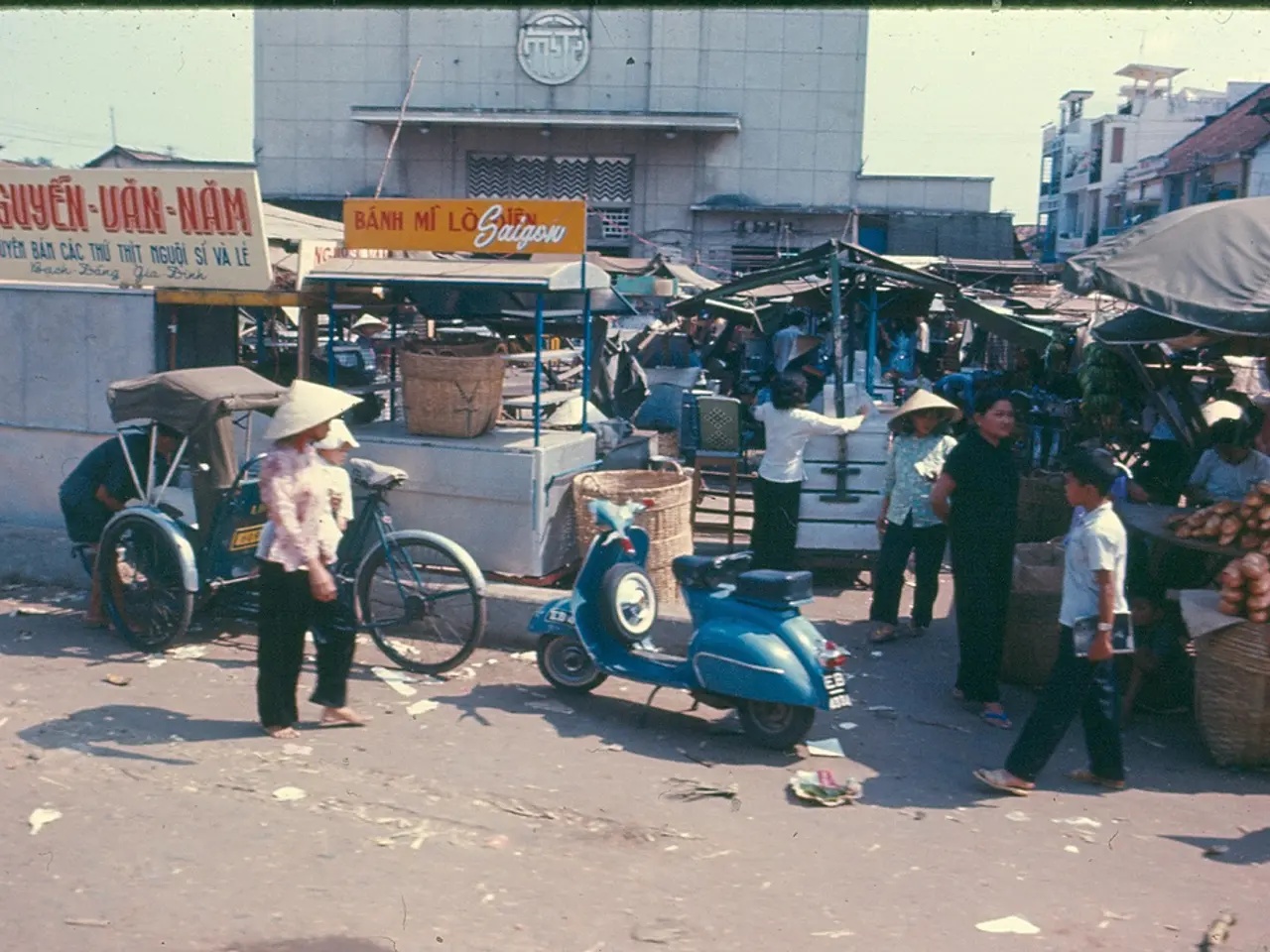Environmental Transformation Sweeps Through Pemba on World Environment Day: A Milestone Towards Zero Plastic Waste
In a significant stride towards a plastic-free future, the picturesque island of Zanzibar recently hosted a community-driven plastic waste cleanup event. This initiative, marking a turning point in the fight against plastic pollution, saw local residents collect, sort, and document an impressive 1.5 tonnes of plastic waste [3].
This cleanup was part of a broader regional effort supported by the IslandPlas project, an initiative hosted by the International Union for Conservation of Nature (IUCN) [1][2]. The IslandPlas project, which focuses on seven African islands including Zanzibar, aims to mitigate plastic packaging waste by empowering local communities and fostering innovative waste management solutions.
Funded by a US$10 million grant from The Coca-Cola Foundation, the IslandPlas project promotes cross-sector collaboration, involving government ministries, academia, civil society, and the private sector. Its core strategy includes transitioning to a circular plastic economy by promoting local entrepreneurship, job creation, and innovations in plastic repurposing and recycling [1][2].
Looking ahead, future plans for plastic waste management in Zanzibar will focus on supporting community-driven collection and sorting activities, enhancing local capacity and infrastructure for recycling and waste processing, encouraging innovation and entrepreneurship in plastic waste repurposing, strengthening partnerships among government, NGOs, local communities, and private sector actors, and leveraging scientific and traditional ecological knowledge to sustain ecosystem health [1][2][3].
The event in Pemba was a result of the convergence between two initiatives: The IslandPlas Project, funded by The Coca-Cola Foundation, and the Bahari Mali Project, supported by the Embassy of Ireland in Dar es Salaam. Three community-based organisations (CBOs) and three informal waste picker groups led the process, separating, categorising, and mapping the waste for future hotspot monitoring [3].
Local government representatives from the Department of Environment under the First Vice President's Office in Pemba attended the event and voiced support for improving plastic waste education, piloting community collection systems, and formally recognising the role of informal actors in local waste governance. Community trainings on reuse, segregation, and entrepreneurship will expand, and a coordinated framework for local waste collection will be explored in close partnership with government authorities and informal workers [3].
The momentum from this event is attributed to the complementary nature of the IslandPlas and Bahari Mali projects. Youth facilitators introduced circular thinking to the community, demonstrating how plastic can be reused, revalued, and redirected before it enters the ocean. The event in Pemba signalled that Zanzibar's movement against plastic waste is no longer an idea. It is underway [3].
This community-led action is a testament to Zanzibar's commitment to becoming a continental model for circular economy innovation under the Great Blue Wall initiative. On World Environment Day 2025, a similar community-driven action was held in the Chakechake District of Zanzibar, collecting, sorting, and documenting 1.5 tonnes of plastic waste from coastal hotspots in one day [3].
As the event in Pemba demonstrated, the fight against plastic waste in Zanzibar is a coordinated effort involving local communities, youth leaders, civil society groups, and government officials. With funding from the Embassy of Ireland in Dar, Bahari Mali aims to amplify pathways for long-term resilience that are driven by the very communities they serve. Bahari Mali will continue to strengthen institutional collaboration, supporting sustainable marine resource use and the integration of local voices into marine policy and co-management [3].
In conclusion, the plastic cleanup event in Zanzibar is embedded in a larger partnership network under IslandPlas and IUCN, which combines local action with regional cooperation and innovation to solve the plastic waste challenge sustainably [1][2][3]. Youth and women will continue to play central roles in building a future where no plastic is left behind - and no voice is left out.
- The plastic cleanup event in Zanzibar, part of the IslandPlas project initiated by the International Union for Conservation of Nature (IUCN), aims to transition to a sustainable plastic economy by promoting local entrepreneurship and innovations in plastic repurposing and recycling, significantly impacting the environmental-science and lifestyle aspects of home-and-garden living.
- In the future, efforts in Zanzibar will focus on the empowerment of local communities, fostering innovation and entrepreneurship in plastic waste repurposing, strengthening partnerships, and leveraging scientific knowledge to sustain ecosystem health, thereby contributing to the fight against climate-change through sustainable-living practices.
- The engagement of local communities, youth leaders, civil society groups, and government officials in the plastic waste management in Zanzibar is a stepping stone towards building a future where no plastic is left behind, ensuring that no voice is left out in the transformation towards a plastic-free environment, a crucial endeavor for both the science community and our everyday lifestyles.




